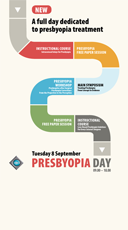Posters
(results will display both Free Papers & Poster)
Cataract surgery in uveitis
Poster Details
First Author: V.Cerovic CROATIA
Co Author(s):
Abstract Details
Purpose:
Cataract develops in patients with uveitis because of the uveitis itself and also because of the steroids which is cornerstone of treating uveitis. Cataract developing in an eye with a history of chronic or recurrent uveitis is complicated cataract. It is complicated both from the standpoint of technical aspects of the surgery itself (limited access secondary to posterior synechiae, pupillary membrane, and pupillary sphincter sclerosis, iris delicacy and vascular abnormalities, and pre-existing glaucoma), and also because of the high likelihood of an exuberant postoperative inflammatory response which can ruin the desired surgical outcome.
Setting:
We will show you few video presentations of cataract surgery in uveitic eyes. All patients were operated by one surgeon in Svjetlost, Eye Hospital,Croatia in last two years.
Methods:
Many of these eyes with prior anterior uveitis have posterior synechiae with the iris adherent to the anterior lens capsule. The synechiae as well as any pupillary membrane can limit pupil dilatation and limit access to the cataract. The membrane and synechiae can be dissected with forceps, a blunt spatula or even with viscoelastic solution. The pupil can than be expanded mechanically and, if needed, held in the position with iris hooks or other expansion devices.
Results:
Improvement in microsurgical techniques have also improved the results. Postoperative improvement of visual acuity was between 30-100%.
Conclusions:
It is possible to achieve successful visual outcomes following cataract surgery in uveitis with the modern day cataract surgery. The predictability has improved mainly because of a higher level of understanding of the uveitic disease among clinicans. Preoprative factors include proper patient selection and conseling and preoprative control of inflammation.
Financial Disclosure:
NONE





